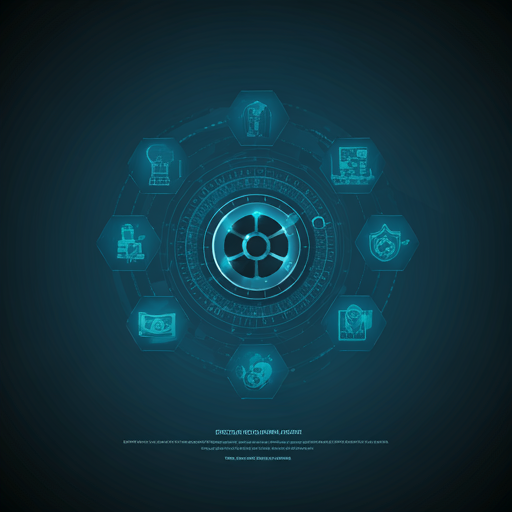Introduction to Cybersecurity in Finance
The Importance of Cybersecurity
In the rapidly evolving financial landscape, cybersecurity has become paramount. Financial institutions face increasing threats from cybercriminals seeking to exploit vulnerabilities. These attacks can lead to significant financial losses and damage to reputations. Protecting sensitive data is essential for maintaining trust. Trust is everything in finance. Moreover, regulatory compliance mandates robust security measures. Institutions must adhere to strict guidelines to avoid penalties. This is not just a legal obligation; it is a moral one. As technology advances, so do the tactics of cyber adversaries. Staying ahead requires continuous investment in cybersecurity infrastructure. It is crucial to prioritize security in every financial transaction.
Overview of Financial Cyber Threats
Financial institutions encounter various cyber threats that jeopardize their operations. Phishing attacks, for instance, target employees to gain unauthorized access. These tactics can lead to severe data breaches. Data breaches can ruin reputations. Additionally, ransomware attacks have surged, crippling systems until a ransom is paid. This creates a significant financial burden. Moreover, insider threats pose risks from within the organization. Employees may inadvertently or maliciously compromise security. Awareness is crucial in mitigating these risks. Institutions must implement comprehensive training programs. Security is a continuous process, not a one-time effort.
Understanding Cryptocurrency Vulnerabilities
Common Security Flaws in Cryptocurrency Platforms
Cryptocurrency platforms often exhibit significant security flaws. One prevalent issue is inadequate encryption protocols, which can expose sensitive data. This vulnerability can lead to unauthorized access. Unauthorized access is a serious concern. Additionally, many platforms lack robust multi-factor authentication measures. This oversight increases the risk of account takeovers. Furthermore, smart contract vulnerabilities can be exploited by malicious actors. Exploiting these flaws can result in substantial financial losses. Regular security audits are essential for identifying weaknesses. Awareness of these issues is critical for users. Security should always be a priority.
Case Studies of Major Breaches
In recent years, several major breaches have highlighted vulnerabilities in cryptocurrency platforms. One notable incident involved a prominent exchange that lost millions due to a security flaw in
Best Practices for Securing Your Cryptocurrency
Using Hardware Wallets for Storage
Using hardware wallets for cryptocurrency storage is a highly recommended practice. These devices provide enhanced security compared to software wallets. Key benefits include:
To maximize security, users should follow these best practices:
By implementing these strategies, he can significantly enhance the security of his cryptocurrency holdings. Security is essential in finance.
Implementing Two-Factor Authentication
Implementing two-factor authentication (2FA) is essential for securing cryptocurrency accounts. This additional layer of security significantly reduces the risk of unauthorized access. By requiring a second form of verification, he can protect his assets more effectively. Common methods include:
To enhance security, he should consider the following best practices:
By adopting these measures, he can significantly bolster his cryptocurrency security. Security is a priority.
Regulatory Framework and Compliance
Global Regulations Impacting Cryptocurrency Security
Global regulations significantly impact cryptocurrency security and compliance. Various jurisdictions have established frameworks to govern digital assets. These regulations aim to protect investors and ensure market integrity. Key regulations include:
He must stay informed about these regulations. Non-compliance can lead to severe penalties. Additionally, regulatory changes can affect market dynamics. Adapting to these changes is essential for success. Awareness is uey in finance.
Best Practices for Compliance in the Crypto Space
In the crypto space, adhering to best practices for compliance is crucial. He should implement robust KYC and AML procedures to verify user identities. This helps mitigate risks associated with fraud and money laundering. Regular audits are also essential for ensuring compliance with regulatory standards. Audits can reveal potential vulnerabilities. Additionally, maintaining transparent records of transactions is vital. Transparency fosters trust with regulators and users alike. He must stay updated on evolving regulations. Compliance is not optional; it is necessary.
The Role of Blockchain Technology in Security
How Blockchain Enhances Security
Blockchain technology significantly enhances security in financial transactions. Its decentralized nature reduces the risk of single points of failure. This means that no single entity controls the entire network. Each transaction is recorded in a tamper-proof ledger, ensuring data integrity. Data integrity is crucial for trust. Additionally, cryptographic techniques secure transaction data, making unauthorized access extremely difficult. Unauthorized access is a major concern. The transparency of blockchain allows for real-time auditing and monitoring. This fosters accountability among participants. He should consider these advantages when evaluating security solutions. Security is paramount inward finance.
Limitations of Blockchain Security
Despite its advantages, blockchain security has notable limitations. One significant issue is the potential for 51% attacks. This occurs when a single entity gains control over the majority of the network. Such control can lead to double-spending. Double-spending undermines trust in the system. Additionally, smart contracts can contain vulnerabilities. These flaws may be exploited by malicious actors. Regular audits are essential to identify weaknesses. Awareness of these limitations is crucial for users. Security is a continuous challenge.
Future Trends in Cybersecurity for Finance
Emerging Technologies and Their Impact
Emerging technologies are reshaping cybersecurity in finance. Artificial intelligence (AI) enhances threat detection and response capabilities. This allows for quicker identification of anomalies. Anomalies can indicate potential breaches. Additionally, blockchain technology improves transaction security and transparency. Transparency builds trust among users. Furthermore, quantum computing poses both risks and opportunities. It can break traditional encryption methods. Financial institutions must adapt to these advancements. Staying informed is essential for security.
Preparing for Future Cyber Threats
Preparing for future cyber threats requires proactive strategies. Financial institutions must invest in advanced cybersecurity technologies. These technologies can detect and mitigate risks effectively. Risk mitigation is essential for protecting assets. Additionally, continuous employee training is crucial for awareness. Employees are often the first line of defense. Regularly updating security protocols is also necessary. This helps address emerging vulnerabilities. Collaboration with cybersecurity experts can enhance defenses. Expert insights are invaluable in this field. Staying ahead of threats is vital for success.

Leave a Reply